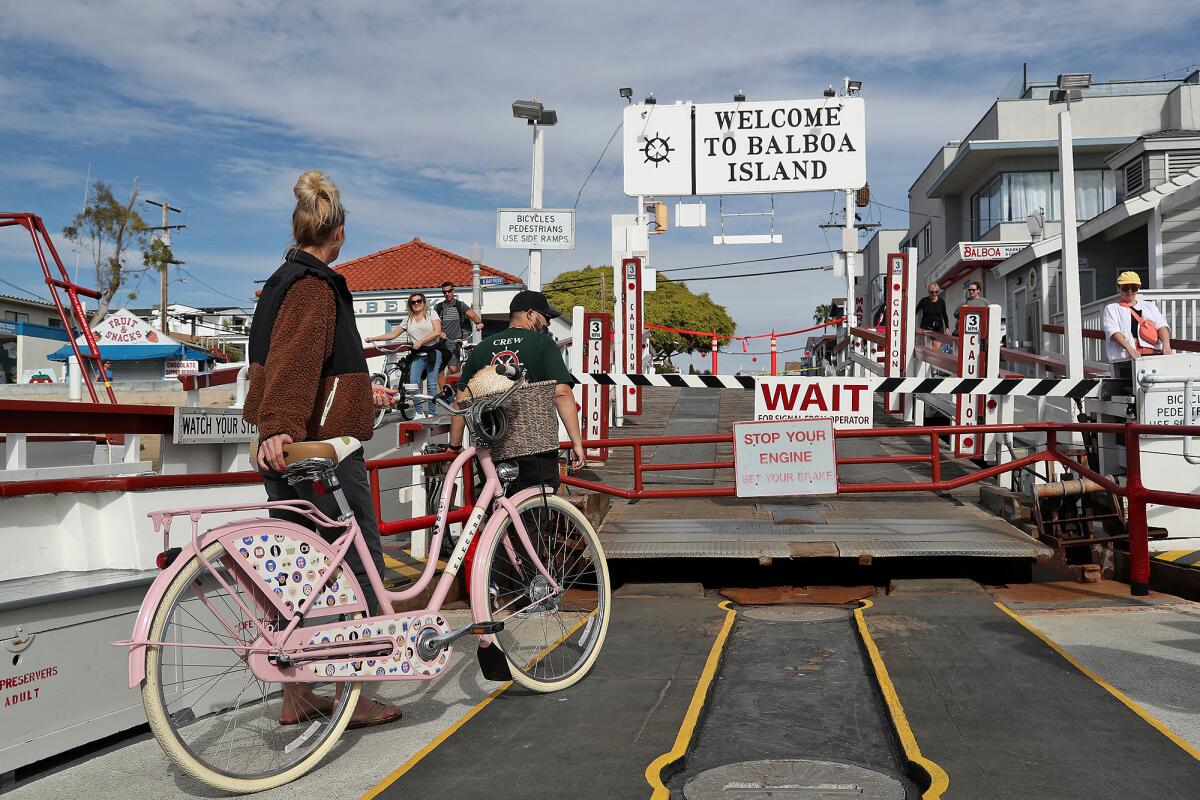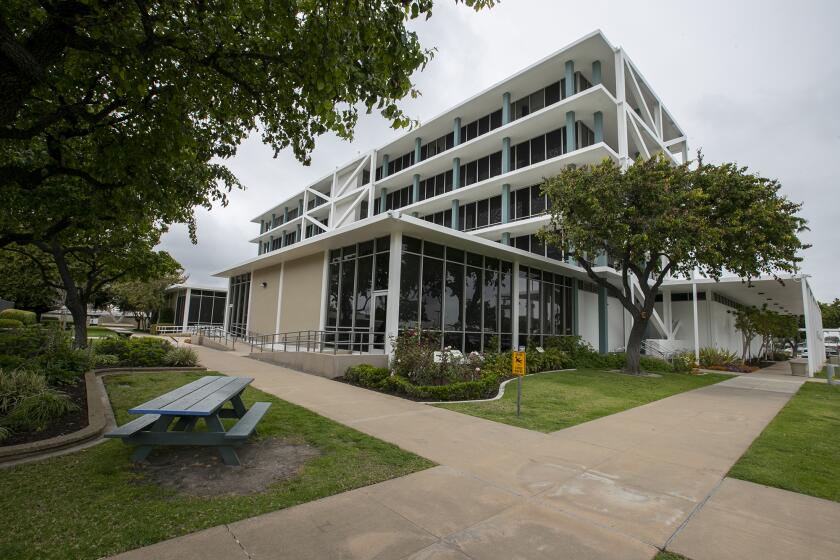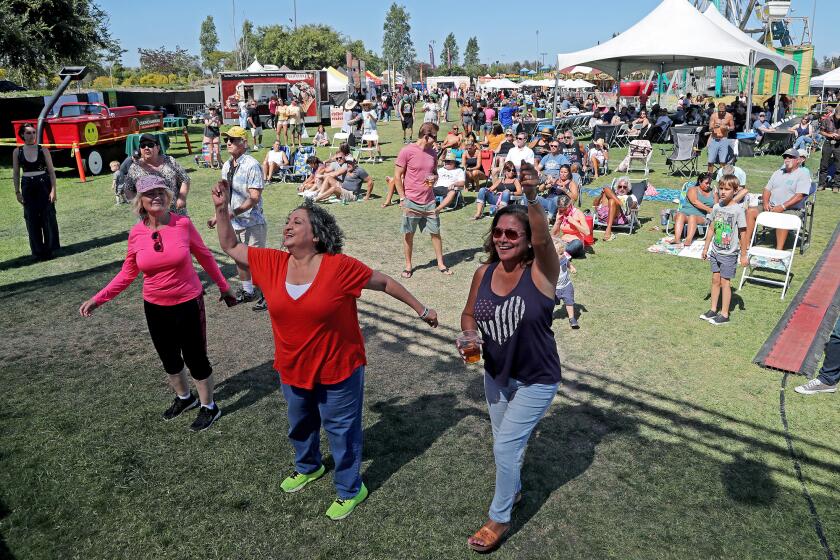Balboa Island Ferry receives a lifeline through $8.3-million grant

- Share via
With an $8.3-million grant from the California Air Resources Board, the owners of the Balboa Island Ferry are “cautiously optimistic” as they inch closer to electrification.
In December 2022, the state board issued new regulations requiring commercial harbor craft to use renewable diesel fuel and begin the process to replacing engines to reduce emissions. Short-run ferries would have until 2025 to fully convert their fleets to electric, but the Beek family, who have owned and operated the Balboa Island Ferry since 1919, have long maintained that the process would not only be expensive but technologically unfeasible.
But on Monday, Joe Beek, an adviser for the ferry and nephew to owner Seymour Beek, said, “CARB is clearly putting their money where their mouth is and providing the financial assistance necessary to achieve zero emissions for the ferry.”
“What remains is to figure out if we can actually do it, particularly with the existing boats,” Joe Beek said. “To this point, we’ve spent a significant amount of money on engineering evaluation, which is not yet complete. It remains to be seen whether or not existing boats can be converted without a high level of risk.”
Beek confirmed the results of that study will be known in April, at which point ferry owners will need to consider their available options. In a statement released Friday, Dixon described the grant as a “positive step forward.”
“When Seymour Beek called me in January 2023 I promised to assist however I could,” Dixon said. “These grant dollars are one important piece to saving the Ferry. It is an iconic fixture for Assembly District 72 and Southern California. I can’t imagine the negative impact it would have on the region if it were to disappear.”
Dixon introduced an Assembly bill in February that would provide up to a 15-year extension to the conversion deadline for local ferries or until the cost of conversion did not exceed the cost of replacement by more than 20%.
Beek said the total estimated cost of conversion is around $13 million and that the Balboa Island Ferry would still have to come up with the remaining $4.7 million. But, there are applications out to the Carl Moyer Memorial Air Quality Standards Attainment Program for $1.7 million and the board’s Clean Off-Road Equipment Vouchers program for roughly $1.9 million, which the ferry owners believe the business qualifies for.
Beek said the Balboa Island Ferry will contribute roughly $2.3 million in kind by running its ferries and testing the electrification process for a two-year proving period following conversions, as the business makes little to no profit.
“There’s been two components to this all along,” he said. “One is the financial one. So, we’ve made a huge step there, but the other one is a technical, logistical problem, which now that we know the money’s available, we can see if that’s solvable.”
All the latest on Orange County from Orange County.
Get our free TimesOC newsletter.
You may occasionally receive promotional content from the Daily Pilot.




